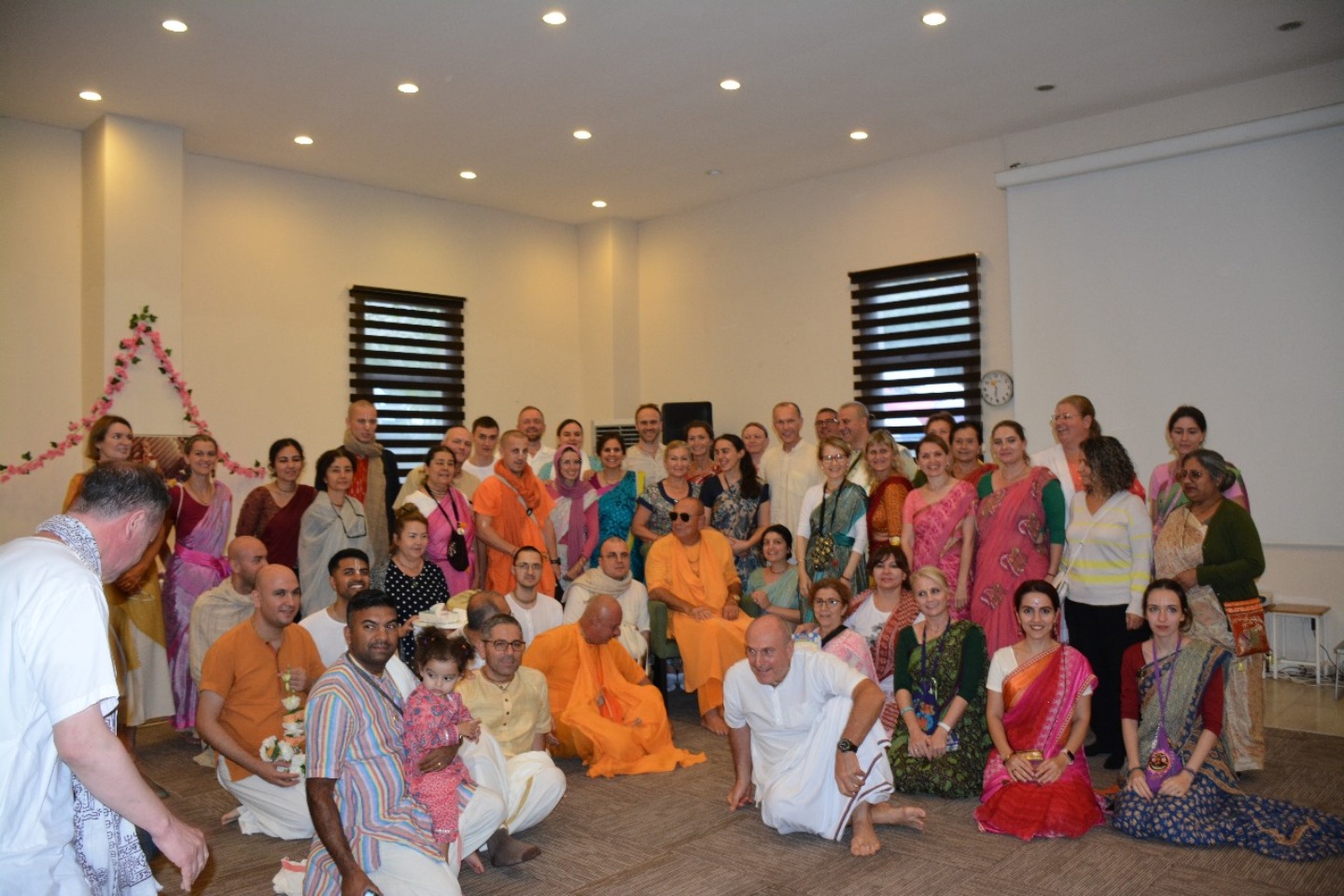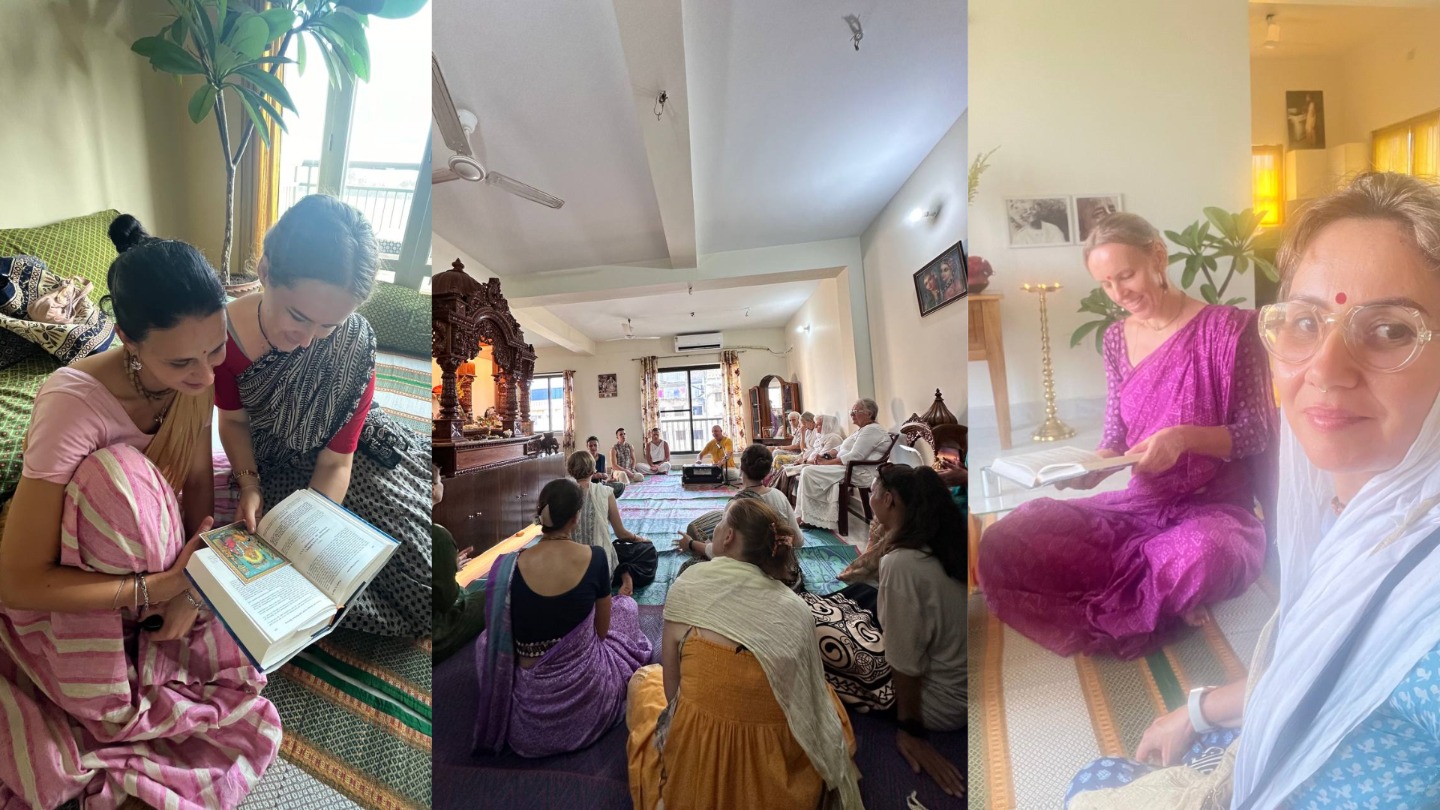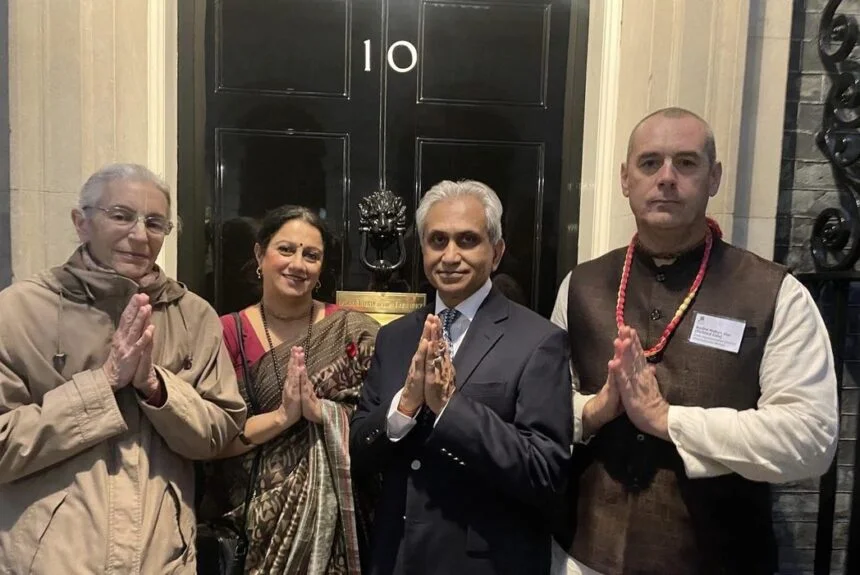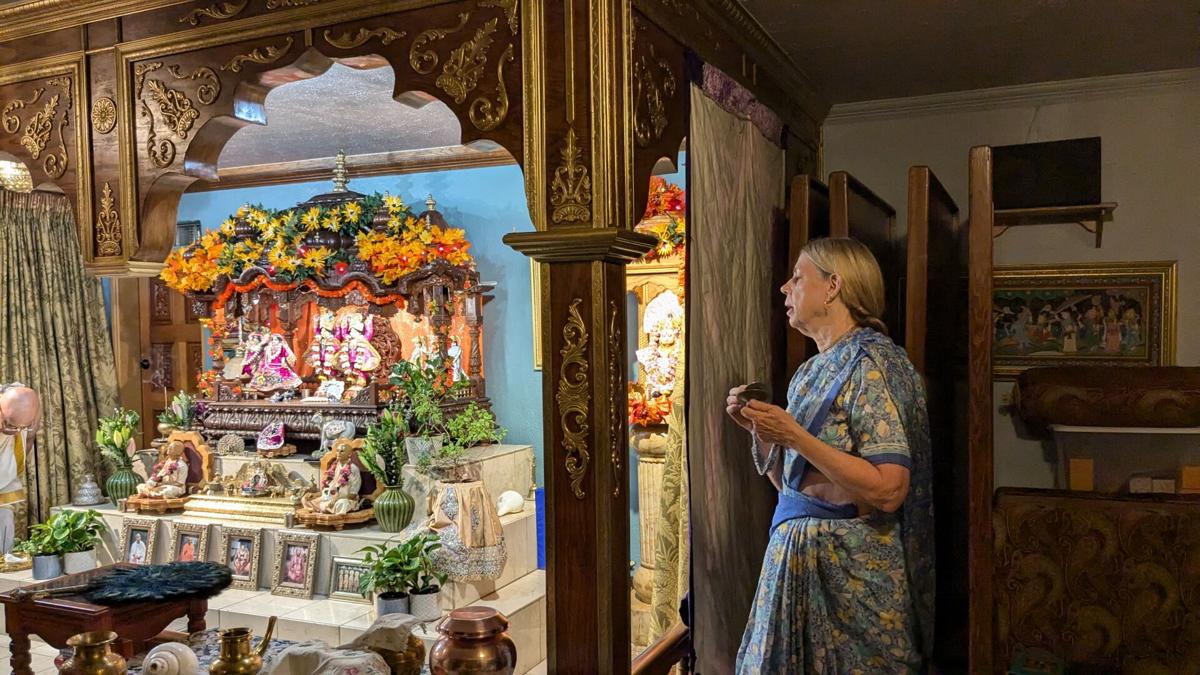GBC Meeting Report- February 25-27th, 2011
By Shraddhadevi Dasi | Мар 04, 2011

After concluding four days of strategic planning, on February 25th, the International Society for Krishna Consciousness’ (ISKCON) Governing Body Commission (GBC) resumed their regular Annual General Meeting (AGM) in Mayapur, West Bengal.
Friday, February 25th was entirely dedicated to reviewing proposals submitted to the GBC by various ISKCON members and committees. Proposal topics have a wide range- from adjusting temple standards, to refining the role of particular committees, to establishing new offices and services in ISKCON.
GBC deputies, a second tier GBC body composed of approximately twenty-five devotees from around the world, assist the GBC in managing proposals. Deputies gather in Mayapur several weeks before the GBC’s Annual General Meeting and work long hours to review and clarify all proposals. For each proposal, deputies discuss in-depth and generate a list of pluses, minuses, and points of interest, which are later presented to the GBC along with the specific proposal. The GBC body then discusses each proposal at great length and takes a straw vote in favor or against a proposal. GBCs can also vote to send the proposal back to the initiators for more information or clarification. Toward the end of the AGM, these proposals are again presented to the GBC body for a final vote on the issue.
As with most years, this year’s proposal topics covered a wide range, from the relationship between ministries and standing committees to guidelines for kirtan standards in temples. One proposal in particular addressed a service that many ISKCON members may not be aware of—the ISKCON Resolve’s Ombuds Office.
ISKCON Resolve was established by the GBC in 2002 as an independent office to assist devotees in resolving problems or concerns that they feel they can otherwise not resolve on their own. The Ombuds Office is a more recent service offered by ISKCON Resolve to provide an opportunity for devotees to confidentially voice any questions or concerns, or to simply request clarification or information on an ISKCON-related topic. The Ombuds Office does not process formal complaints, but it is an independent, neutral, informal, and free resource to all devotees affiliated with ISKCON.
Braja Bihari dasa, one of the founders of ISKCON Resolve, presented to the GBC a proposal for the Ombuds Office “Terms of Reference”, meaning an official document describing the structure, systems, and purpose of the Ombuds Office. Braja Bihari dasa explained that since its inception in 2002, ISKCON Resolve has processed 2300 cases. Of further significance is that, although ombuds offices are becoming common within universities and corporations, ISKCON is the first spiritual organization to establish an ombuds office on an international basis. If you would like more information on services provided by ISKCON Resolve and its Ombuds Office, please visit www.iskconresolve.com.
The remainder of the meeting session was spent continuing the review process of additional proposals. Final voting on proposals will most likely take place on March 2nd.
ISKCON’s 2011 Annual General Meeting of the GBC continued February 26th and 27th with GBC members separating into committees to discussion specific topics. Some of the committees were Guru Services, GBC-BBT Relations, Parallel Lines of Authority, and the Sannyasa Committee. Regional Governing Bodies, such as the Latin Governing Body and the North American GBCs also convened to discuss issues particular to their geographic area of service.
In most cases, GBC committees discuss and research a specific subject matter, then seek approval from the GBC body on suggestions regarding how to proceed. The primary role of most committees is to assist in educating others on the content of the topic and how it relates to ISKCON and ISKCON’s members. To do this, committees may develop seminars, courses, or written documents pertaining to their topic.
For example, the GBC Guru Services committee has introduced educational resources, retreats, and training sessions to assist devotees in their role as a disciple or guru. The committee continues to organize annual Guru Seminars and Retreats, which allow devotees who serve as instructing or initiating gurus to associate with one another and share their experiences. This year the Guru Services committee is also launching a multi-day course for prospective disciples, in attempt to better educate devotees in the qualifications, responsibilities, and roles of both disciples and gurus. The hope is that in the future this will be a standard course for devotees who desire to take initiation within ISKCON.
Committees may also suggest policy or request permission from the GBC body to create and oversee an official system of evaluation. For example, by approval of the GBC body, the Sannyasa committee established a comprehensive evaluation process to guide and approve sannyasa candidates. Such a process helps to clarify for sannyasa candidates the responsibilities and position of a sannyasi, and also creates a support system that aids in strengthening the overall health of the sannyasa ashram within ISKCON.
As for the other committees, the GBC-BBT Relations committee discusses issues specifically related to enhancing communications and cooperation between the GBC and the Bhaktivedanta Book Trust (BBT). Furthermore, the Parallel Lines of Authority committee explores the relationship between the authority and directions of various leaders such as gurus, GBCs, and local management, and how these lines of authority can and should cooperatively work together.
Committee work is ongoing throughout the year, and additional committee meetings will be interspersed between plenary sessions throughout the remaining days of the GBC’s Annual General Meeting.










